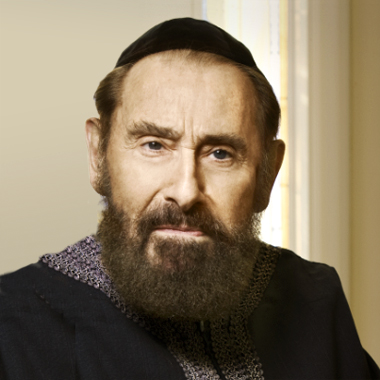
The portion of Mishpatim begins with a subject that repels most people—the matter of slavery —discussing how many years an Israelite slave must work. It also tells us that this slave must eventually be given his freedom. Are we meant to read Mishpatim to learn about slaves?
When we read the Bible literally, these verses do not make sense. In fact they seem totally irrelevant, and further there is a question as to whether or not there is even a reason to study from them or consider them to be of much importance. But as we know, the Zohar is the instrument we use to help us to decode the Bible, which was never meant to be taken literally. The Zohar explains that we can learn a great deal about the causes of our own chaos. By chaos I am not discussing the great catastrophes that occur from time to time, but rather those daily, monthly, and yearly experiences which create doubt as to the existence of a Creator.
The Zohar says that the first verse of Mishpatim: “These are the laws that you should put before them,” refers to the law of reincarnation, indicating that the travel of the soul from one lifetime to another does in fact exist. This is what these verses of Mishpatim are all about—not slavery but reincarnation. Many of us, at one time or another has raised the question, “What did I do to warrant this kind of chaos in my life?”
What we teach in Kabbalah is that chaos does not come from without but rather from within. No one out there can touch us or harm us unless we have caused chaos in a prior lifetime or lifetimes, which is the cause for experiencing chaos today. It is not random. We cannot connect the chaos we experience in the present with what we may have done to deserve it in the past unless we are aware of the concept of reincarnation.
The Zohar is teaching us that we can tap into the energy of other lifetimes. While we may not understand what we are going through, we can at least relate it to the idea that we are responsible for everything that happens to us. The Zohar explains that there are two ways to go through a hardship—either we can say to ourselves, I suppose this is retribution for something that I have done in a prior lifetime, or we can cry to God with “why have You brought this on me?”
However, with the second question we will have wasted the experience we were presented with by the universe, and will have to come back again. This has happened to all of us; we have, each one of us, come back because we did not recognize what was required of us in a past lifetime. We did not undergo the tikkunim, corrections. The goal from this section of the Zohar is to understand that when we accept responsibility for the chaos we experience, this facilitates its removal. It is that simple. This is the purpose of having the awareness of the principle of reincarnation, which helps us to recognize that nothing in this world is random.
Many people believe that events are random, that there is no clear connection of what affects what. However, the cause of our current experience, good or bad, is in all likelihood not linked to anything we have done today; it could be something we did 40 lifetimes in the past. This is mind-boggling for those of us who are seeking to understand cause and effect on the physical level.
In Genesis, we learned that there are parallel universes in this world that we experience; there are two levels: a physical level and a spiritual level. When we don’t know that a spiritual level exists what emerges is confusion, which is to our detriment. It all appears random because it comes from somewhere that no one knows. The Zohar explains that there is no such thing as random.
We study Kabbalah to learn what keeps us cognizant of the fact that when chaos sets in it is an opportunity to transform what we need to correct from a past life, and ultimately remove it permanently so that we never have to endure that experience again. Knowledge of the Zohar, and specifically Mishpatim, helps us avoid the pitfalls because we discover that our prior lifetimes do not cease with the end of the physical body.
Read the full Zohar portion of Mishpatim and connect to the energy of the week here.

